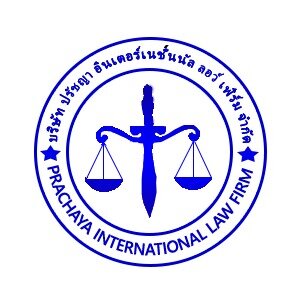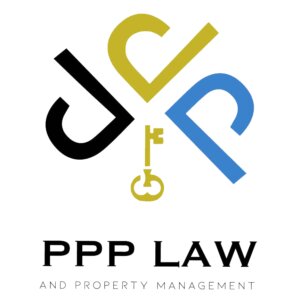Best Commercial Real Estate Lawyers in Huai Khwang
Share your needs with us, get contacted by law firms.
Free. Takes 2 min.
Free Guide to Hiring a Real Estate Lawyer
List of the best lawyers in Huai Khwang, Thailand
Thailand Commercial Real Estate Legal Articles
Browse our 7 legal articles about Commercial Real Estate in Thailand written by expert lawyers.
- 5 Common Legal Pitfalls in Thai Real Estate and How to Avoid Them
- Nestled within the paradisiacal landscapes and burgeoning economic dynamism of Thailand lies a high-stakes real estate market rife with both rapturous potential and formidable legal complexities. This idyllic Southeast Asian terrain has emerged as a globally-coveted destination for luxury residential developments, commercial property investments, and ambitious real estate endeavors spanning... Read more →
- How Foreigners Can Own Property in Thailand
- For foreigners considering property ownership in Thailand, understanding the process and relevant laws is crucial. These laws are not typically compared to the property ownership laws of other countries, as the Kingdom strictly regulates which foreigners can own property, the circumstances under which they can do so, and the types... Read more →
- Tax Implications of Buying Property in Thailand: A Comprehensive Guide
- You might be an expat in Thailand hunting for your next property investment, and interested in buying a condo in one of the world’s fastest-moving cities, Bangkok; or perhaps you’re an investor who is also in awe of the stunning and ever-popular vacation island of Phuket, or a retiree considering... Read more →
About Commercial Real Estate Law in Huai Khwang, Thailand
Commercial real estate in Huai Khwang, a bustling district within Bangkok, is driven by rapid urban development and the city's growing status as a commercial hub. This area features a mix of office buildings, retail spaces, warehouses, hotels, and mixed-use developments. Commercial real estate law in Huai Khwang covers the legal aspects of owning, leasing, developing, and managing these types of properties. It involves a range of complex transactions and regulatory compliance measures unique to the Thai legal landscape and the local regulations set by the Bangkok Metropolitan Administration.
Why You May Need a Lawyer
Engaging a qualified commercial real estate lawyer is crucial to navigating the complexities of property transactions in Huai Khwang. Common scenarios that may require legal advice or representation include:
- Purchasing or selling commercial property
- Drafting and negotiating lease agreements
- Conducting due diligence on real estate titles and land use
- Advising on zoning and land development regulations
- Handling disputes between landlords and tenants
- Structuring joint ventures or investment in commercial projects
- Managing regulatory compliance and licensing requirements
- Assisting foreign nationals or companies with property acquisition and company formation
- Representing parties in court or arbitration for real estate-related conflicts
A commercial real estate lawyer provides the necessary guidance to minimize risks, protect legal rights, and ensure the transaction complies with all local laws and regulations.
Local Laws Overview
Commercial real estate in Huai Khwang is governed by a mix of national laws and specific local regulations. Key legal aspects to consider include:
- Land Code and Land Title System: Ensures clarity of ownership through registered title documents. Foreign ownership of land is generally restricted, but long-term leases or company structures may be used.
- Condominium Act: Allows certain rights for foreigners to own condominium units under prescribed limits.
- Zoning and Building Regulations: Managed by Bangkok Metropolitan Administration, these rules dictate the permitted use of land and development density, including building height, parking, and environmental impact requirements.
- Leasing Law: Lease terms, renewal rights, and conditions (often max thirty years) must comply with the Civil and Commercial Code, with some requirements for registration at the Land Office.
- Taxation: Covers transfer fees, specific business tax, income withholding tax, and stamp duty, which vary depending on the transaction and parties involved.
- Licensing and Approvals: Certain commercial activities and modifications require permits from local authorities.
- Foreign Business Act: Provides restrictions and obligations for foreign nationals and entities investing in real estate-related business in Thailand.
Understanding these local laws is critical for anyone dealing with commercial real estate transactions or disputes in Huai Khwang.
Frequently Asked Questions
Can foreigners own commercial property in Huai Khwang?
Foreigners generally cannot directly own land in Thailand, including in Huai Khwang. However, they may be able to lease the land on a long-term basis or own certain condominiums under the Condominium Act. Company structures may also be used but must comply with strict legal guidelines.
What are the common types of commercial leases in this area?
The most common leases are for office, retail, and industrial spaces. These leases typically range from three to thirty years, depending on the purpose and value of investment, and may require registration with the Land Office for terms exceeding three years.
What due diligence steps should I take before buying commercial real estate?
Essential checks include verifying title deeds, checking zoning and permitted use, assessing infrastructure and utility access, ensuring regulatory compliance, and confirming no encumbrances or ongoing disputes affecting the property.
Do leases need to be registered with the Land Office?
Leases longer than three years must be registered with the local Land Office to be legally enforceable against third parties. A proper lease registration protects both landlord and tenant rights.
What taxes and fees apply to commercial real estate transactions?
Relevant taxes and fees include transfer fees, business tax, stamp duty, and withholding tax. The specific rates and responsibilities for payment usually depend on the transaction type and whether the parties are individuals or companies.
How is property zoning regulated in Huai Khwang?
Property use in Huai Khwang is governed by zoning regulations established by the Bangkok Metropolitan Administration. These regulations specify what type of development can occur, including permitted uses and building restrictions.
What should I do if there is a dispute with a landlord or tenant?
It is advisable to first attempt amicable negotiation. If the issue persists, formal mediation, arbitration, or legal proceedings in Thai courts may be necessary. Engaging a lawyer can help resolve disputes efficiently.
Do I need a Thai partner or company to invest in commercial real estate?
Direct land ownership by foreigners is restricted, so many foreign investors establish a Thai company (with majority local ownership) or enter into long-term leases. However, all arrangements must comply with Thai law to avoid legal issues.
Are there special rules for developing commercial property?
Yes. Developers must obtain relevant permits, comply with environmental impact assessments, and follow construction and safety regulations. It is crucial to consult with local authorities and legal experts to ensure full compliance.
Where do I register real estate transactions or seek official information?
The local Land Office in Huai Khwang handles property registration and provides official records. Additional inquiries can be made at the Bangkok Metropolitan Administration or related governmental departments.
Additional Resources
If you require further information or assistance, consider reaching out to the following resources:
- Huai Khwang Land Office: Responsible for property registration, transfer, and lease issues in the district.
- Bangkok Metropolitan Administration: Handles zoning, permits, and development approvals for commercial properties.
- Department of Lands (DOL): Oversees land ownership, titles, and related legal matters.
- Ministry of Commerce: For information regarding company formation and the Foreign Business Act.
- Law Society of Thailand: To locate qualified real estate lawyers with expertise in commercial matters.
- Thailand Board of Investment (BOI): For foreign investors seeking approval or incentives in real estate projects.
Next Steps
If you are considering a commercial real estate transaction, development, or investment in Huai Khwang, it is essential to proceed methodically:
- Gather all preliminary information about the property or project
- Schedule a consultation with a qualified local real estate lawyer to review your objectives and concerns
- Conduct thorough due diligence, including title verification, zoning review, and compliance checks
- Ensure all contracts and agreements are carefully drafted and checked for legal compliance
- Register relevant transactions with local authorities and obtain necessary permits or licenses
- Consult with your lawyer regarding ongoing management, tax planning, and dispute resolution
Taking these steps will help protect your rights, minimize legal risks, and ensure a smooth process for your commercial real estate needs in Huai Khwang, Thailand.
Lawzana helps you find the best lawyers and law firms in Huai Khwang through a curated and pre-screened list of qualified legal professionals. Our platform offers rankings and detailed profiles of attorneys and law firms, allowing you to compare based on practice areas, including Commercial Real Estate, experience, and client feedback.
Each profile includes a description of the firm's areas of practice, client reviews, team members and partners, year of establishment, spoken languages, office locations, contact information, social media presence, and any published articles or resources. Most firms on our platform speak English and are experienced in both local and international legal matters.
Get a quote from top-rated law firms in Huai Khwang, Thailand — quickly, securely, and without unnecessary hassle.
Disclaimer:
The information provided on this page is for general informational purposes only and does not constitute legal advice. While we strive to ensure the accuracy and relevance of the content, legal information may change over time, and interpretations of the law can vary. You should always consult with a qualified legal professional for advice specific to your situation.
We disclaim all liability for actions taken or not taken based on the content of this page. If you believe any information is incorrect or outdated, please contact us, and we will review and update it where appropriate.










